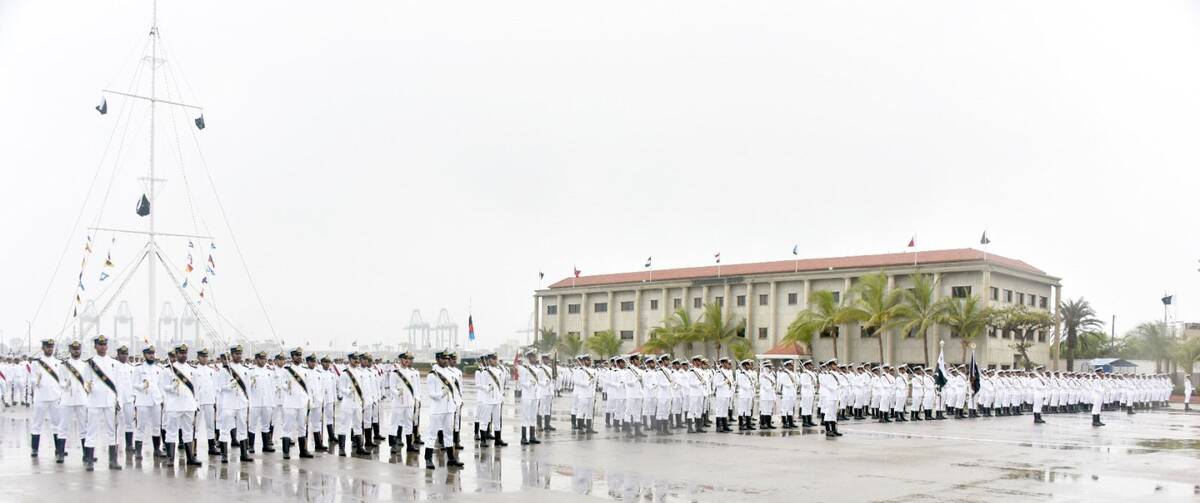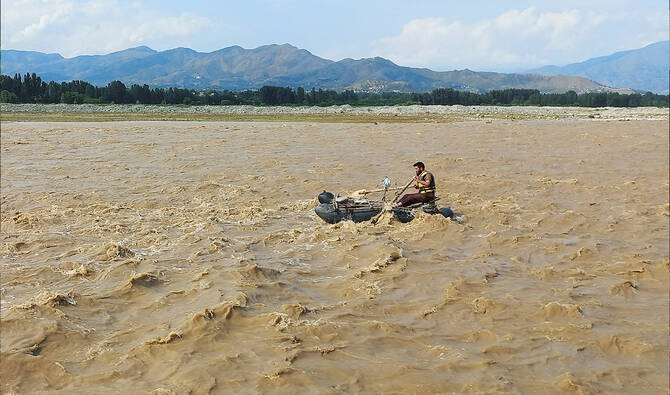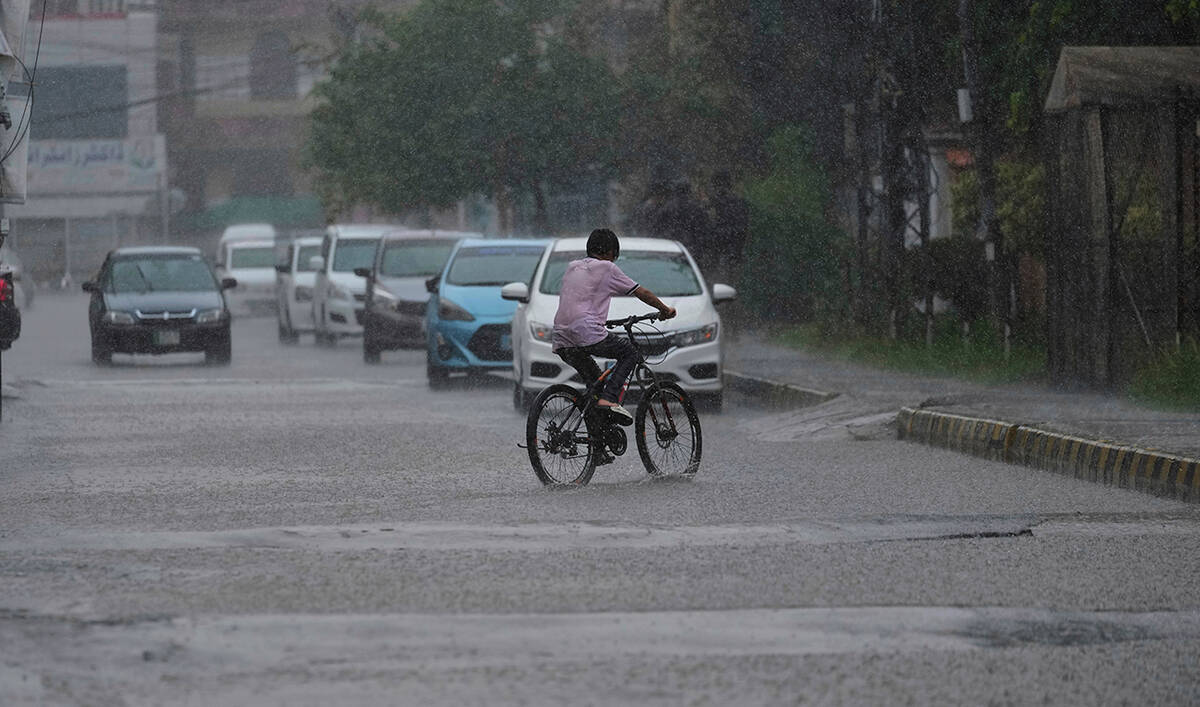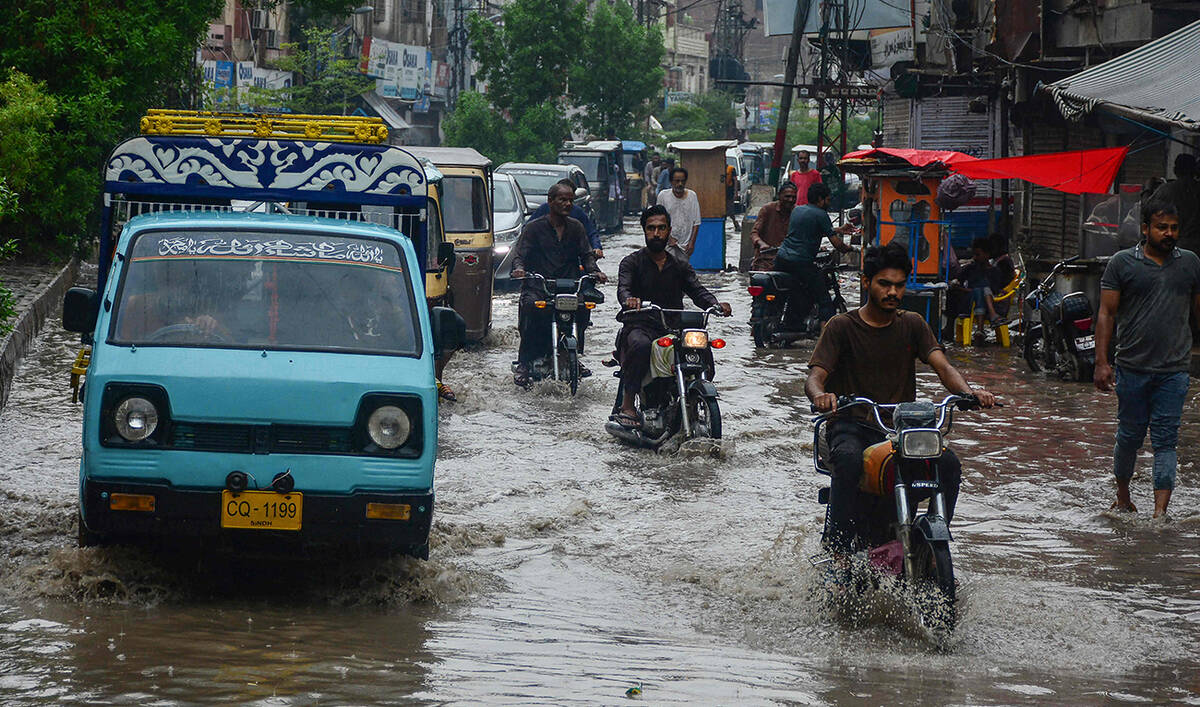ISLAMABAD: Former prime minister Imran Khan, Pakistan’s popular opposition leader, is now an inmate at a high-security prison after being convicted of corruption and sentenced to three years.
It’s the most dramatic twist yet in months of political and legal wrangling between Khan and his political rivals since he was toppled in a parliamentary no-confidence vote in April 2022.
Khan’s party said it will appeal what government critics describe as a flimsy case, aimed at removing the former cricket star from politics ahead of a general election meant to be held this fall. The government defended the conviction as lawful and denied that Khan is a victim of political persecution.
If the conviction stands, the 70-year-old Khan would be prohibited by law from running for office or leading Pakistan Tehreek e-Insaf, the party he founded in the 1990s. However, polls indicate a strong election showing for PTI, and Khan’s imprisonment could further boost its standing.
What was the case against him?
An Islamabad court ruled Saturday that Khan failed to report income from gifts he received from foreign dignitaries and heads of state while he was in power. In Pakistan, government leaders are allowed to keep such gifts after leaving power, in exchange for paying a portion of the value for them.
The court said Khan sold some of those gifts and failed to state those earnings in a report last year to Pakistan’s election commission. The court convicted Khan of corruption, handed down a three-year sentence and fined him 100,000 rupees, or roughly $350.
Shortly after the verdict, Khan was detained at his home in the eastern city of Lahore and taken to a high-security lockup in the town of Attock, about an hour’s drive from the capital of Islamabad.
What other cases are pending against khan?
Since Khan’s ouster, more than 150 cases have been filed against him by various government agencies on charges ranging from contempt of court to terrorism and inciting violence.
Critics say this flurry of legal filings is part of an attempt by the governing coalition to sideline Khan, who as opposition leader has been able to mobilize huge crowds of loyal supporters.
The government, in turn, portrays Khan as a corrupt trickster who has employed legal maneuvers to stay out of prison. The government has backers in Pakistan’s powerful military, which has controlled the country for much of its 75-year history.
How is this arrest different?
Khan is being held in Attock, a notorious lockup for convicted militants and violent criminals. Officials familiar with conditions there said he has his own cell with a fan and separate bathing facilities, a step up from the prison’s generally harsh conditions. The officials spoke on condition of anonymity because they were not allowed to brief the media.
This is in marked contrast to Khan’s brief detention in May, after he was dragged from a court hearing on a different set of corruption charges by anti-graft officials. The Supreme Court intervened swiftly, declaring the detention illegal. Khan was allowed to stay at a guest house in a police compound and could receive visitors while the legal arguments over his detention played out. Khan eventually returned to Labore, where his car was showered with rose petals.
What happens next?
The Supreme Court could overturn Khan’s conviction and sentence on appeal — an outcome that political analyst Imtiaz Gul believes is likely.
“There was absolutely no solid case against Imran Khan, who had to face this conviction because of a technical mistake,” said Gul, who heads the Center for Research and Security Studies, an Islamabad-based think tank.
Information Minister Marriyum Aurangzeb claimed in a statement defending the conviction that support for Khan is eroding.
“He may deceive a few naive, gullible supporters, but the general public now recognizes his true nature,” she wrote. “His pretense has been stripped away, revealing the face of an individual who evaded the law, exploited state gifts for trivial profits.”
If Khan’s conviction stands, he won’t be able to lead his party into an election because those with criminal convictions are barred from running for office. But even from behind bars, he could wield significant political influence.
After his detention in May, his supporters demonstrated their ability to disrupt public life. Tens of thousands of Khan loyalists rampaged through cities, some of them destroying military and government property. The government cracked down, detaining more than 7,000, with some prosecutions still ongoing.
By comparison, the reaction to Khan’s arrest this weekend was much more muted, possibly because of fears of another crackdown. His calls for peaceful protests failed to rouse widespread support.
What is the political fallout?
Prime Minister Shehbaz Sharif is likely to dissolve parliament in the coming weeks, possibly paving the way for elections by mid-November. The government could delay the vote by several months if it decides to redraw constituencies based on recent census results.
Khan’s imprisonment could win him and his party greater electoral support. It would also feed into the political persona he created after losing power — that of a fearless campaigner for Pakistan’s disadvantaged.
“The next elections are likely to be held without active participation of Imran Khan, but even from jail, he has the potential to effectively run a campaign for his candidates,” said political analyst Azim Chaudhry.






















